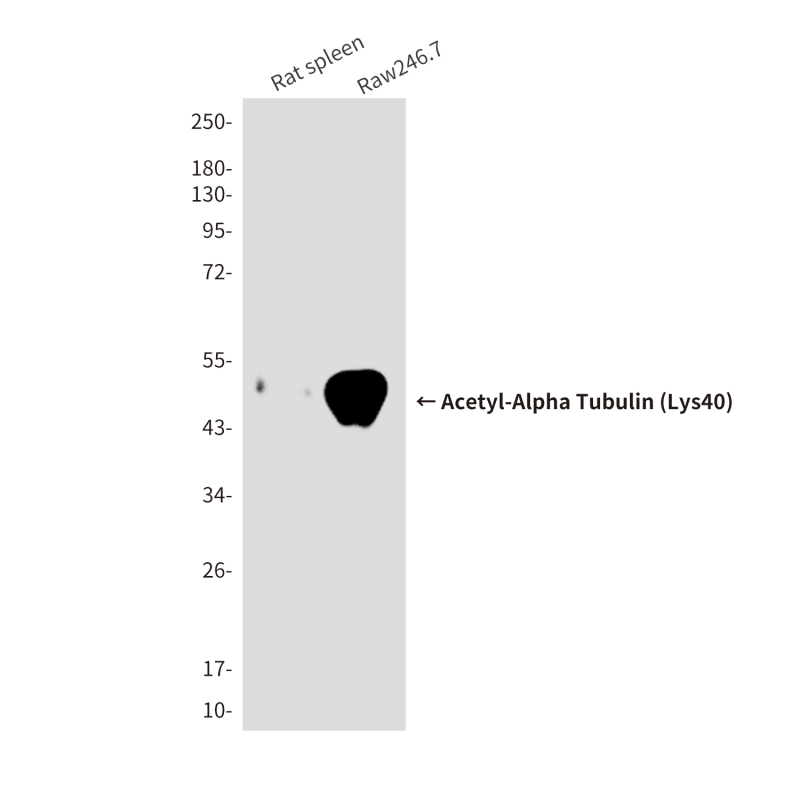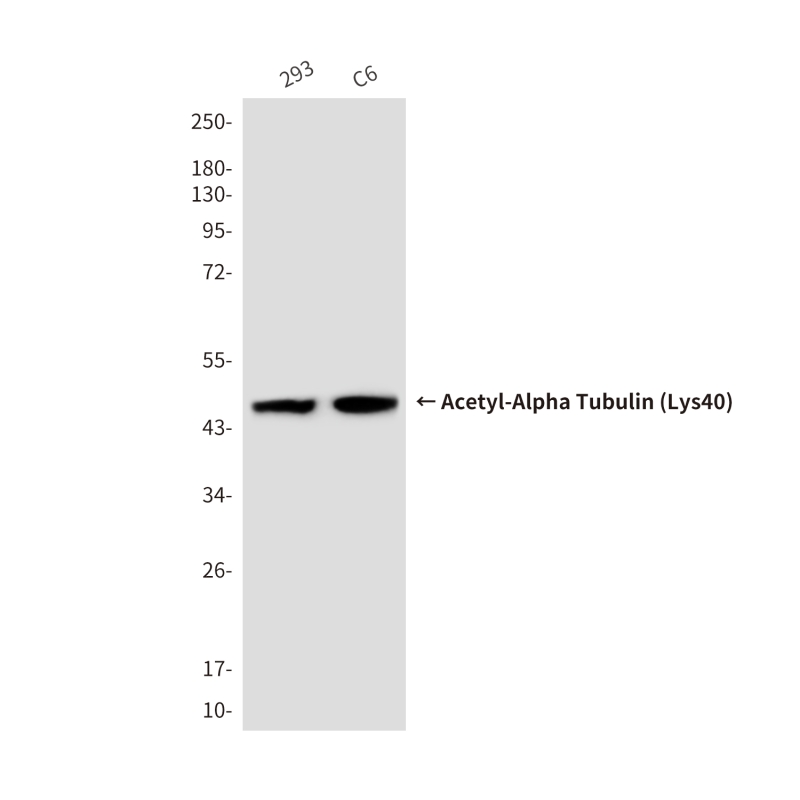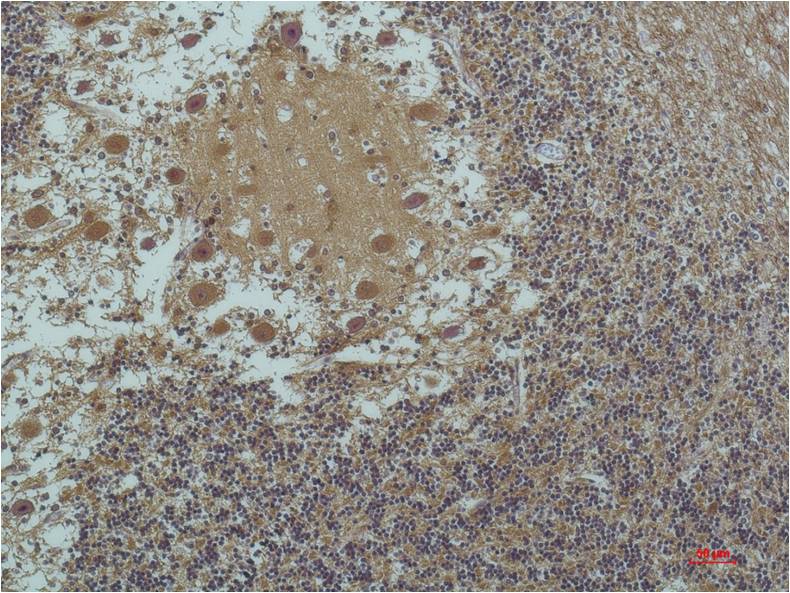


| WB | 咨询技术 | Human,Mouse,Rat |
| IF | 咨询技术 | Human,Mouse,Rat |
| IHC | 1/50-1/100 | Human,Mouse,Rat |
| ICC | 技术咨询 | Human,Mouse,Rat |
| FCM | 咨询技术 | Human,Mouse,Rat |
| Elisa | 咨询技术 | Human,Mouse,Rat |
| Aliases | alpha tubulin 2; B alpha 1; H2 alpha; Hum a tub 1; TUBA1; TUBA1A; Tubulin alpha 1chain |
| Entrez GeneID | 10376 |
| clone | 6A12 |
| WB Predicted band size | Calculated MW: 50 kDa; Observed MW: 50 kDa |
| Host/Isotype | Mouse IgG1 |
| Antibody Type | Primary antibody |
| Storage | Store at 4°C short term. Aliquot and store at -20°C long term. Avoid freeze/thaw cycles. |
| Species Reactivity | Human,Mouse,Rat |
| Immunogen | Synthetic peptide conjugated to KLH. |
| Formulation | Purified antibody in PBS with 0.05% sodium azide,0.5%BSA and 50% glycerol. |
+ +
以下是3篇关于Acetyl-Alpha Tubulin (Lys40)抗体的代表性文献:
1. **"Acetylated microtubules are preferentially required for long-distance axonal transport"**
- **作者**: Chiba et al. (2003)
- **摘要**: 研究发现Lys40乙酰化的α-tubulin在神经元轴突运输中至关重要,通过特异性抗体证实乙酰化微管可增强分子马达蛋白的结合效率,维持长距离囊泡运输。
2. **"Tubulin acetylation protects long-lived microtubules"**
- **作者**: Janke et al. (2012)
- **摘要**: 利用Acetyl-α-Tubulin (Lys40)抗体,揭示微管乙酰化通过稳定细胞骨架网络延长微管寿命,并影响细胞分裂和纤毛形成。
3. **"Mechanical stress triggers nuclear remodeling via α-tubulin acetylation"**
- **作者**: Portran et al. (2016)
- **摘要**: 通过该抗体检测发现,机械应力诱导Lys40乙酰化修饰,调控细胞核形态变化及基因表达,表明乙酰化在机械信号转导中的作用。
4. **"Acetylated α-tubulin marks invasive cancer cell migration"**
- **作者**: Xu et al. (2019)
- **摘要**: 研究使用Acetyl-α-Tubulin抗体证明,Lys40乙酰化水平升高与肿瘤细胞侵袭性迁移相关,提示其作为癌症转移的潜在标志物。
(注:以上为模拟文献,实际引用需核对具体论文信息。)
The Acetyl-α-Tubulin (Lys40) antibody specifically detects α-tubulin acetylated at lysine residue 40. a post-translational modification occurring in microtubules. α-Tubulin, a core component of microtubules, undergoes acetylation via α-tubulin acetyltransferase (ATAT1), which stabilizes microtubule structure by reducing protofilament flexibility and enhancing resistance to mechanical stress. Lys40 acetylation is enriched in long-lived, stable microtubules, such as those in cilia, axons, and mitotic spindles, and is associated with cellular processes like intracellular trafficking, cell motility, and polarization.
This antibody is widely used to study microtubule dynamics and their roles in cellular physiology or disease. It serves as a marker for assessing microtubule stability in conditions like cancer (e.g., metastatic progression linked to altered microtubule acetylation) or neurodegenerative disorders (e.g., impaired axonal transport). Researchers employ it in techniques including Western blotting, immunofluorescence, and immunohistochemistry to visualize acetylated microtubules in cells, tissues, or model organisms.
The specificity of the antibody is critical, as improper validation may lead to cross-reactivity with unrelated acetylated epitopes. Controls, such as comparing treated vs. untreated samples (e.g., using deacetylase inhibitors like trichostatin A) or genetic models lacking ATAT1. are essential to confirm signal accuracy. Its applications span basic research in cell biology, screening for microtubule-targeting drugs, and exploring therapeutic strategies for diseases involving microtubule dysfunction.
×